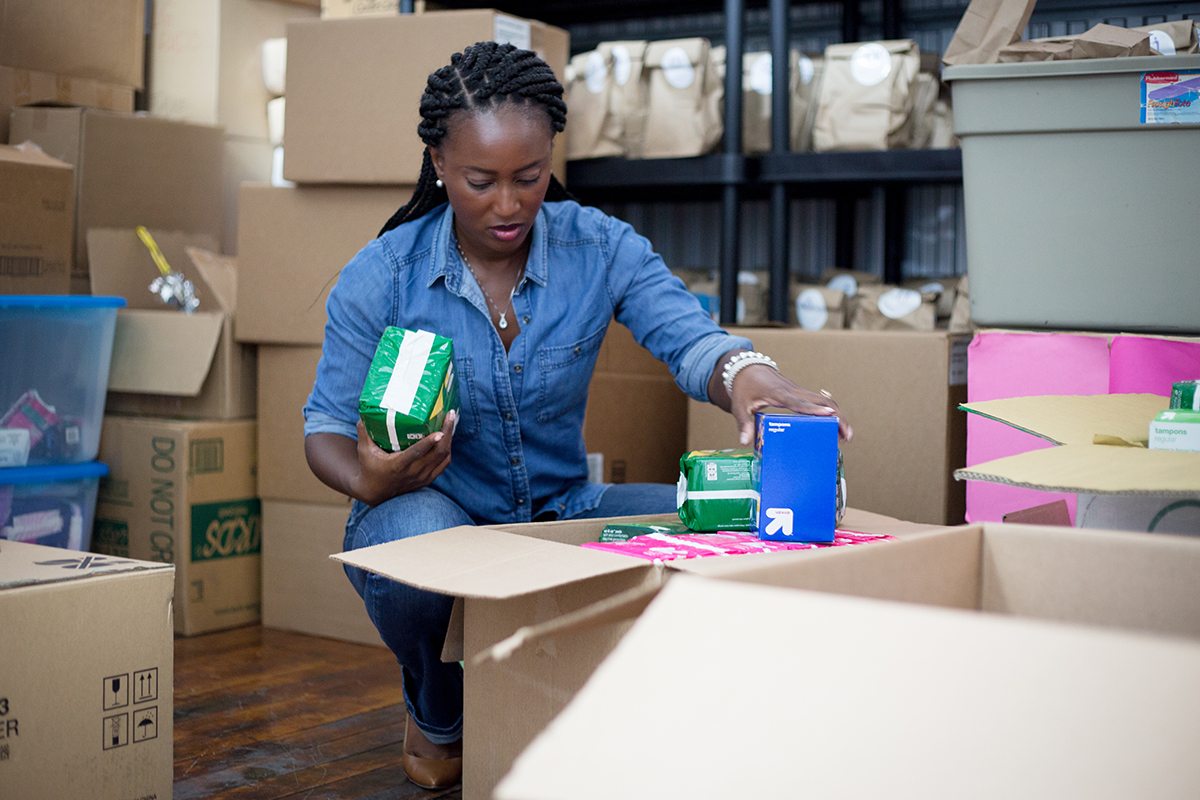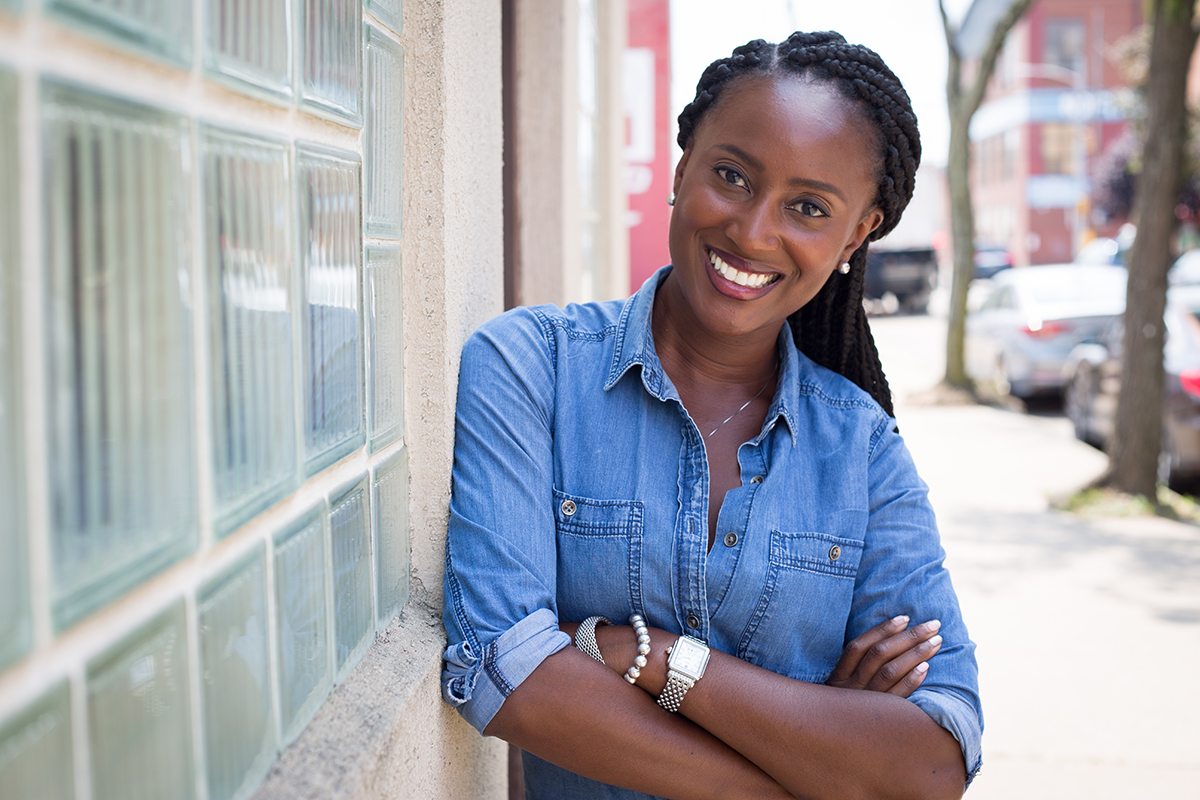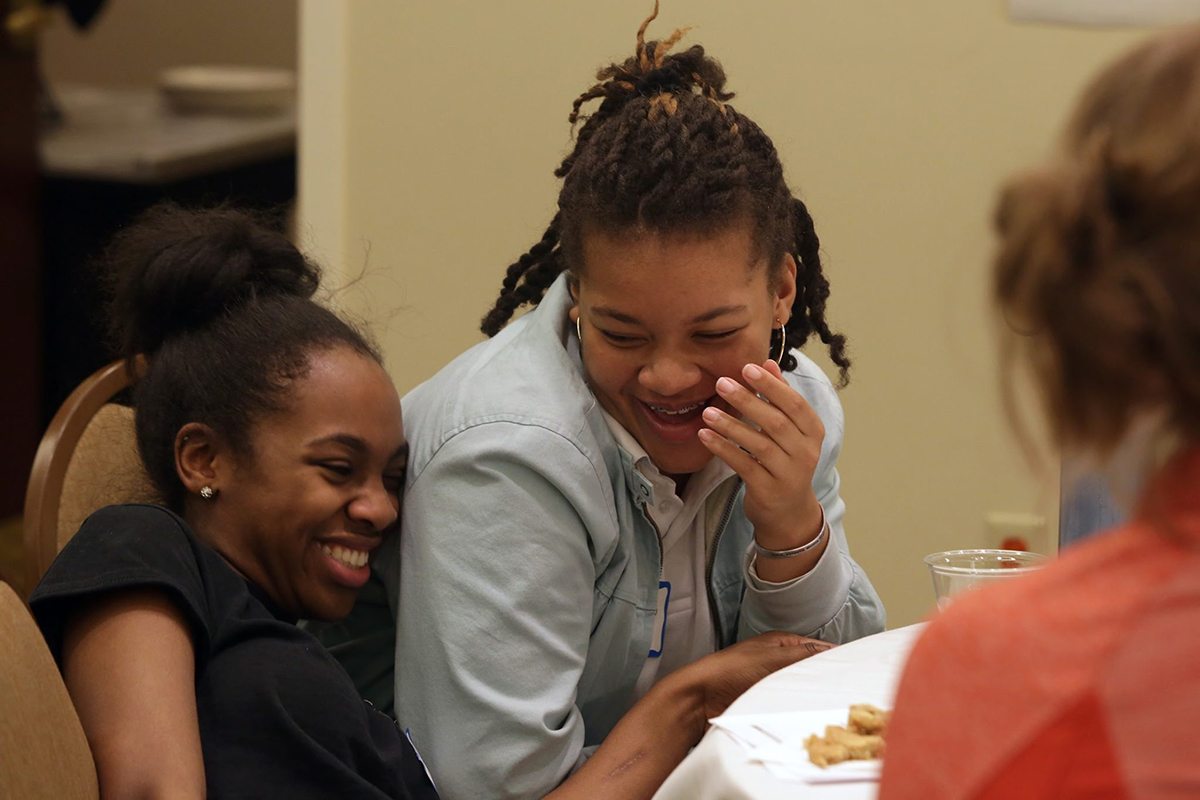Dear Liza, Ciara and Cheyenne,
I hear you. We hear you.
The article on your efforts serves as a call to action to make sure young black women are getting the educational materials they really need to make informed choices about their sexual health. As black girls, you are starting to deal with issues of oppression, sexual awareness and economics, and need support in developing healthy, empowered lives in general. Rather than adults telling you what your sexual choices should be, I feel that you need us to provide you with the tools to decide for yourselves.
Today, most sexual education programs emphasize reproductive biology, thus, isolating human sexuality from the rest of human relations. This approach to sexual education has not changed much from when I grew up in the 1990s. Teaching girls only about their physical bodies is not enough. We must demand a holistic approach to sexual health that supports physical, emotional, mental and social well-being in relation to sexuality.
Even though you all attend different schools with different educational curricula, one thread is consistent: you are not getting the realistic information that is needed to make critical decisions on your sexual health. You may attend racially diverse schools…but why are black girls disproportionately becoming pregnant, contracting STIs or are victims of dating violence and rape compared to their white counterparts? How many black households are having the traditional “sex talk” with their girls? Given the alarming rates of disparities, we are in need of effective programs that not only target black girls, but are also tailored for them to increase their retention in programs and expectant changes in their behavior.
Rather than adults telling you what your sexual choices should be, I feel that you need us to provide you with the tools to decide for yourselves.
In the article, you touched upon abstinence-based sexual education curriculum. I personally am in favor of comprehensive sexual education, but if we are going to present abstinence in schools, I question the emphasis on marriage. Why not make it about delaying sexual activity until one is more mature, responsible and has achieved other life goals. Girls at the middle school and high school levels may be thinking about abstinence or delayed sexual activity, but not necessarily about marriage. Administrators should take that into consideration in order to be more inclusive.
Despite the lack of progress in sexual education, I am hopeful for you and your peers. You have so much access to information. Black girls are now able to research and find the answers for themselves instead of having to rely on a single authority for information about sex (like a parent, teacher or preacher).
It is awesome that you are a part of the GirlGov program, and I urge you to also connect to other local organizations dedicated to feminine health issues such as SisterFriend, Inc., an organization I started, as well as New Voices for Reproductive Justice. Allow us to join you as you advocates for policies that protect your decision-making, ensure your safety and promote healthy relationships. We must be proactive and stop being reactive. Creating programs that provide sexual education prior to our young people getting pregnant, contracting STIs or entering relationships is key. There are programs for teenage mothers but where are the dedicated programs that specialize in sexual awareness?

Tamara Whiting is the founder of SisterFriend, a Pittsburgh organization dedicated to menstrual hygiene management by providing vulnerable women and girls with services, advocacy and education. (Photo by Njaimeh Njie/PublicSource)
My organization SisterFriend, Inc., has started working with girls via our SisterFriend Leadership Academy. During this conference, we provide workshops on feminine health, leadership and community service. We believe that we must create a safe space for girls to learn about their bodies and get the support they need. Though most of our efforts concentrate on menstrual hygiene management, our workshops aim to educate girls on all aspects of feminine health. At this year’s conference, we gathered information on classroom barriers when it comes to menstruation. Some of the feedback we received focused on the lack of comfortability discussing this topic with male teachers and the lack of access to feminine products while at school. Girls gave specific examples of having to ask teachers for feminine hygiene products because the school nurse ran out or having teachers not believe that they needed to really go to the restroom (when they needed to address menstrual issues) when their hands were raised. Providing information on proper menstrual hygiene management is just one part of a comprehensive sexual education curriculum.
I know we try to protect the childhood innocence of our girls by not having blunt talks about sex but in doing so we are aiding in their ignorance. Black people have always been strong, so I think we can trust our girls with this information. It is our duty to make sure they are armed with accurate information so they can make decisions about their health. A one-size-fits-all approach to sexual education just will not work.
Sexual health can be a very sensitive subject so I am proud that as young women you were open enough to share your experiences and opinions with the public in the hopes to shed light on the topic. I encourage you to continue to be a voice for other black girls. Together with young people like yourself we can reach more of your peers and help advocate for more comprehensive sexual education classes.
Sincerely,
Tamara L. Whiting
Tamara L. Whiting is the founder of SisterFriend, Inc., a Pittsburgh organization dedicated to menstrual hygiene management by providing vulnerable women and girls with services, collective advocacy and education. She can be reached at www.sisterfriend.org.


